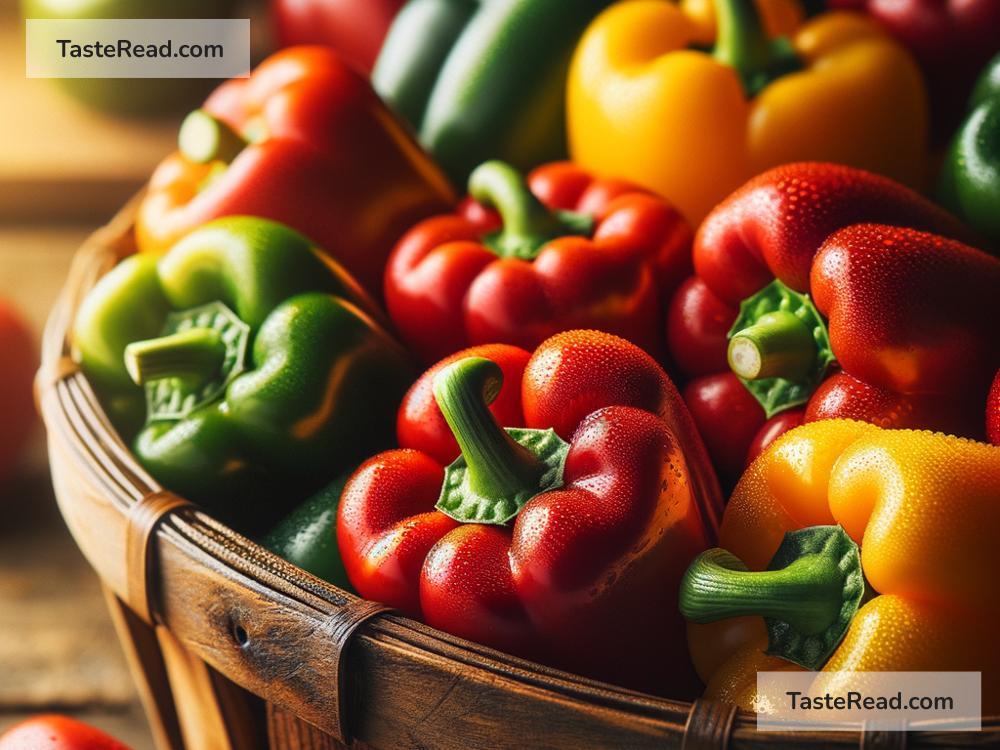Why Bell Peppers Are Packed with Vitamin C: A Simple Explanation
When you think of foods high in vitamin C, oranges might spring to mind. But did you know that bell peppers actually contain much more vitamin C than oranges? These colorful veggies—red, green, yellow, and orange—aren’t just tasty additions to salads, stir-fries, and snacks; they’re also nutrition powerhouses. In this article, we’ll explore why bell peppers are packed with vitamin C and how this amazing nutrient can benefit your health.
What Is Vitamin C?
Before diving into bell peppers specifically, let’s talk about vitamin C. Vitamin C, also known as ascorbic acid, is an essential nutrient that your body needs but cannot produce on its own. This means that you have to get it from food or supplements. Vitamin C is famous for its role in boosting immunity, but it has many other important functions. For example, it helps your body heal wounds, supports healthy skin, and protects your cells from damage caused by harmful molecules known as free radicals.
Bell Peppers and Vitamin C: The Basics
So, why are bell peppers such a rich source of vitamin C? To understand this, we need to look at their nutritional composition. A single medium-sized bell pepper can provide over 150% of the recommended daily intake of vitamin C. That’s far more than what you’d get from eating an orange or other citrus fruits.
But not all bell peppers are the same when it comes to vitamin C content. The color of the pepper actually matters! Here’s a simple breakdown:
- Red bell peppers have the highest amount of vitamin C, making them the ultimate vitamin C champions.
- Yellow and orange bell peppers also contain a lot of vitamin C, though slightly less than red peppers.
- Green bell peppers have the least vitamin C compared to their colorful counterparts, but they still provide an impressive amount of it.
Generally speaking, the brighter and riper the bell pepper, the more vitamin C it contains. Red bell peppers are the ripest, which explains why they have the most nutrients.
Why Do Bell Peppers Have So Much Vitamin C?
You might be wondering why bell peppers are so packed with vitamin C. The answer lies partly in their natural role in reproduction and growth. Plants produce vitamin C as an antioxidant to protect themselves from environmental stress like sunlight, pests, and disease. Bell peppers, especially in their ripe stages, accumulate higher levels of vitamin C to ensure their seeds are healthy and able to sprout into new plants.
Additionally, bell peppers belong to the Capsicum family, which naturally tends to produce high levels of vitamin C compared to other fruits and vegetables. This makes them nutritional stars in the plant world!
How Does Vitamin C Benefit Your Body?
Now that we know bell peppers have tons of vitamin C, let’s talk about why this nutrient is so important for your health. Here are some of the key benefits:
-
Boosts Your Immune System
Vitamin C helps your body fight off illnesses like colds and infections. It encourages the production of white blood cells, which are essential for protecting your body from harmful invaders. -
Promotes Healthy Skin
Vitamin C is a key ingredient in producing collagen, a protein that keeps your skin firm and elastic. Eating enough vitamin C can help your skin look and feel healthy while also speeding up wound healing. -
Fights Free Radicals
Vitamin C acts as an antioxidant, protecting your cells from damage caused by free radicals, which can lead to aging and chronic diseases like cancer. -
Supports Iron Absorption
If you eat foods that are high in iron, like spinach or beans, pairing them with bell peppers can help your body absorb the iron more efficiently. Vitamin C enhances iron uptake, making it especially useful for people with anemia or iron deficiencies. -
Helps Your Heart Stay Healthy
Some studies suggest that vitamin C helps reduce inflammation, lower blood pressure, and protect against heart disease. Adding bell peppers to your diet could be a tasty way to support heart health.
Easy Ways to Add Bell Peppers to Your Diet
The good news is that bell peppers are incredibly versatile. Here are a few simple ways to incorporate them into your meals:
- Slice them up and eat them raw with hummus or dip for a crunchy snack.
- Add them to salads for a burst of color, flavor, and nutrition.
- Stir-fry them with other vegetables and your favorite protein.
- Roast them in the oven for a smoky, caramelized flavor.
- Chop them up and toss them into soups, stews, or omelets.
Because vitamin C is sensitive to heat, eating bell peppers raw is the best way to get the most out of their nutrients. However, cooking them lightly can still preserve some of the vitamin C content, so feel free to enjoy them whichever way you prefer.
Conclusion
Bell peppers are more than just colorful veggies; they’re vitamin C superstars that can significantly boost your health. Whether you’re looking to strengthen your immune system, improve your skin, or protect your heart, bell peppers are an excellent choice. With their versatility and incredible nutritional benefits, there’s no reason not to make them a regular part of your diet. So, next time you hit the grocery store, grab some bell peppers and start enjoying their health-boosting powers!


